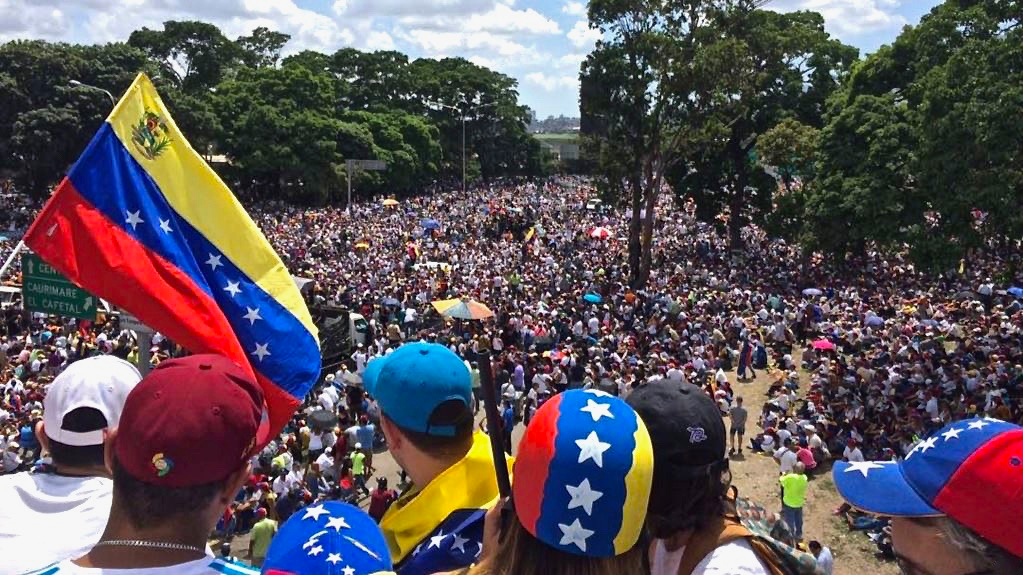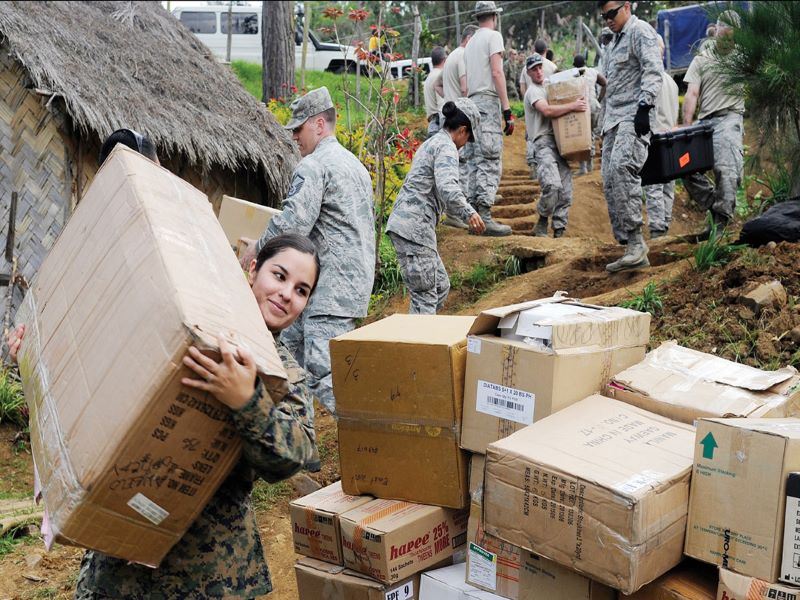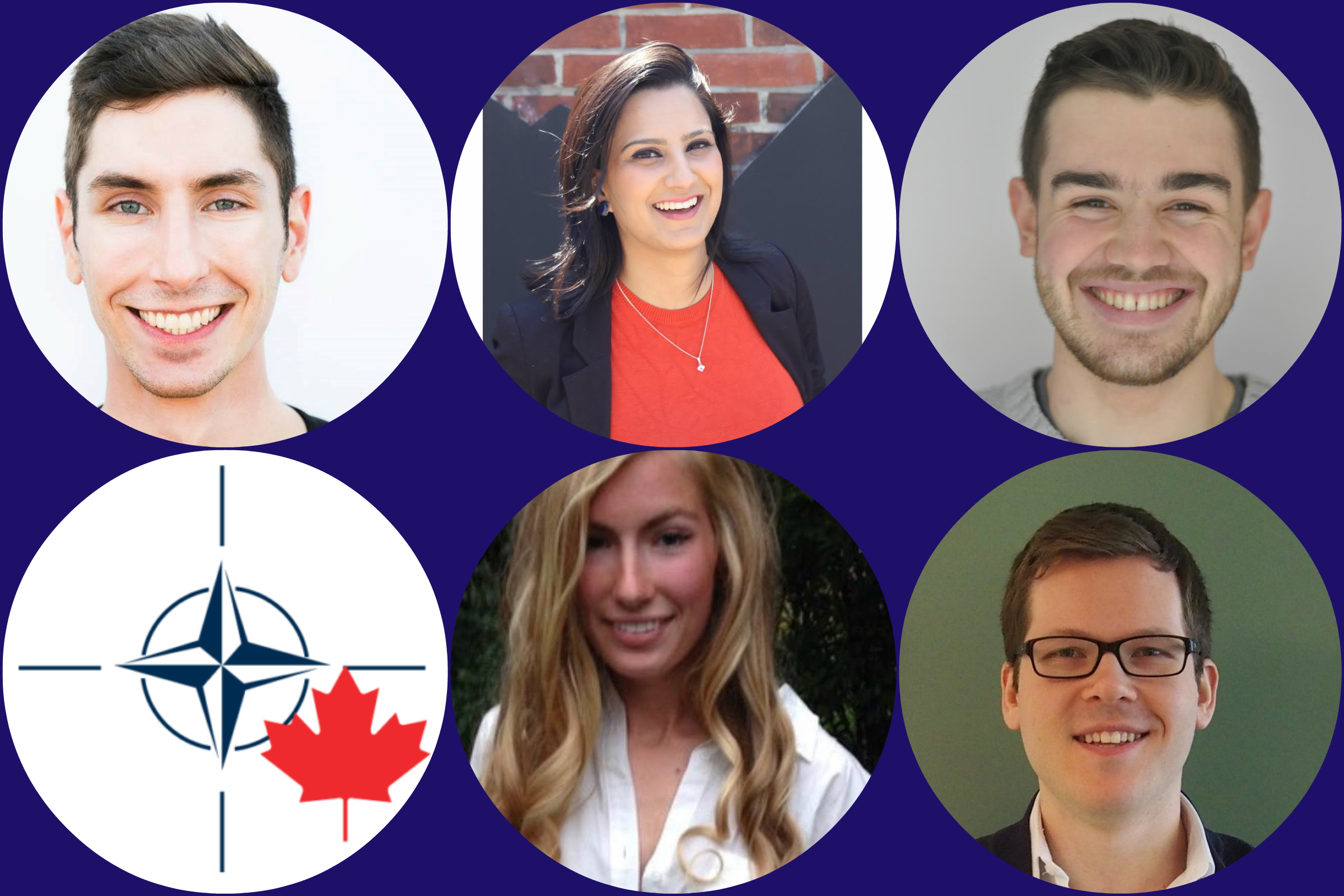Abstract: Nicolás Maduro, the current President of Venezuela, has been in power for nearly six years. Since his inauguration, Maduro has corroded the foundations of democracy in this South American country. Under Maduro, Venezuela has seen its legal and political democratic institutions weakened or completely dismantled. These institutions include the country’s democratically elected Congress, members of the Supreme Court, and Attorney General. In January 2019, the head of the country’s National Assembly, Juan Guaido, declared himself interim President of Venezuela, and called Maduro’s authority “illegitimate.” This article explores the humanitarian crisis that has struck Venezuela, and the conflict between the two men with each claiming to be the legitimate President of Venezuela.
A full-blown crisis is underway in Venezuela regarding the legitimacy of Nicolás Maduro’s claim to the Presidency. As a result of the persecution of political opponents, a crackdown on political activism, and extrajudicial killings, the national election that occured in January 2019 was condemned as invalid by Venezuela’s National Assembly. A few weeks later, leader of the National Assembly Juan Guaido, declared himself interim President of Venezuela. The international community reacted immediately, with 65 countries and a few intergovernmental organizations declaring support for Juan Guaido’s claim as the acting President of the country, outlining that they did not recognize the January 2019 election results as valid. Countries that support opposition leader Juan Guaido include several neighbouring states such as Brazil, Argentina, Columbia and Chile. The United States, Canada, France, the U.K. and several other E.U. member states have also publicly recognized Juan Guaido as the acting President of Venezuela. There are also a handful of multilateral governmental organizations that have recognized Guaido’s claim, including the Lima Group, a group of fourteen North and South American countries, founded for the purpose of establishing a peaceful and diplomatic solution to the Venezuelan crisis.
Following the U.S. declaration in support of Juan Guaido, Maduro issued a statement ordering all U.S. diplomats to leave the country within 72 hours. The United States reacted by recalling all non-emergency U.S. officials. U.S. Vice President Mike Pence, however, condemned Maduro as a “dictator with no authority” and argued that he did not have the authority to expel all U.S. officials. The U.S. government reiterated that its embassy in Caracas would remain open. After this act of defiance, the Venezuelan government threatened to cut off power to the embassy.
Despite support for Guaido by the U.S. and other countries, there are also about 50 UN-member states that have expressed support for the Maduro regime, such as Russia, China, Turkey, Iran, and North Korea. The UN Human Rights chief Michelle Bachelet called for talks between the two leaders to defuse the political chaos, and to prevent further turmoil. Bachelet has also called for independent investigations following reports that Venezuelan Security Forces had killed at least 20 people, and detained more than 350 people involved in demonstrations against the Maduro regime.
In the weeks following the elections, Guaido rallied Venezuelans across the country and called for protests against the Maduro regime. Tens of thousands of demonstrators took to the street of nearly every major city across Venezuela to demand a change of government. Despite military commanders expressing loyalty to the Maduro regime in Caracas, Maduro’s political opponent Juan Guaido made an appeal to the military, to “come to the side of the Venezuelan people,” and to allow foreign aid to come into the country. Juan Guaido has also stated that he has not ruled out pardoning Maduro, should he peacefully step down. It has also been reported that the National Assembly is considering pardoning former government officials and military personnel to restore democracy in the country.
Amongst the political turmoil, on January 28, 2019, a few days after Juan Guaido declared himself the interim President of Venezuela, the U.S. issued new sanctions against the country, largely aimed at the petro-state’s oil industry, and specifically towards the state-owned oil company Petróleos de Venezuela, S.A. In a CBS interview that aired in early February, U.S. President Donald Trump confirmed that military intervention in Venezuela could be an option. Foreign actors that have backed the Maduro regime have warned against this. Russian officials referred to such an action as “destructive meddling”, stating that a U.S. intervention could disrupt the foundations of development in the economically-strapped country.
Venezuela hosts the largest known oil reserves on the planet, totaling over 300 billion barrels within its territorial and naval borders. Given the naturally volatile price fluctuations of oil, this has been both a blessing and a curse for the country. In the past, Venezuela was able to ride the waves of high oil prices and was once South America’s wealthiest country with the 4th largest GDP per capita in the world.
Over the span of a few decades, however, in part due to poor economic policies, the country has backstepped to the brink of economic collapse, sparking a humanitarian crisis. According to a poll conducted by the Atlantic Council, nearly 80% of Venezuelans say their country is facing a humanitarian disaster, and of those polled 65% say Maduro was doing a poor job in addressing it. It has also been reported that due to extreme food and medicine shortages, hyperinflation, rampant crime and malnutrition, the humanitarian crisis has condemned almost 90% of the population of Venezuela to live below the poverty line. Over the course of a few years, 3 million people have fled Venezuela to neighbouring countries.
Venezuela can be described as a petrostate (albeit a failed one), which means that the country’s economy is largely centered around its oil industry. The economic and political power of traditional petrostates is generally concentrated in a small group of people, while political and social institutions are generally weak, unaccountable, and vulnerable to corruption. Venezuela is home to a rich natural resource sector and experiences substantial foreign investment flows, yet lacks economic diversification in areas such as agriculture and manufacturing, a process known as Dutch Disease. This has lead to a nearly monolithic economy for Venezuela since oil sales account for close to 98% of export earnings and as much as 50% of the country’s GDP.
The humanitarian crisis that Venezuela currently faces has been brought on by a multitude of causes. For starters, decades after the discovery of oil in the 1920s, the country adopted various socialist policies under Hugo Chávez, and introduced various expensive social services using income generated from the petrostate’s oil industry. During this time, the industry became nationalized, and the state-owned oil company Petróleos de Venezuela, S.A (PDVSA), monopolised oil production.
During the stock market crash in 2008, and the resulting devaluation of commodities worldwide (including petroleum), Venezuela’s economy crashed and the country has been reeling ever since. The Venezuelan government has done little to address this issue, and has continued to pay for government spending by racking up national debt, which has caused the value of the country’s currency to plummet and experience hyperinflation.
Moreover, while Venezuela’s status as a petrostate is an aggravating factor in the turmoil the country faces, the political regime is also to blame. Maduro’s Venezuela is a cautionary tale of how a country can devolve from a democratic state into one that is authoritarian. Maduro was elected in 2013, but has since taken steps to stay in power by undermining the country’s political institutions and mechanisms for accountability and transparency.
Under the Maduro regime, the ruling party has frequently broken election rules to ensure favourable outcomes, eroded and eliminated institutions to balance its power, and has granted itself huge resources while restricting resources from political opponents. The Maduro regime has also banned certain opposition party candidates from elections, and has at least 228 political prisoners, often dissidents, detained nationwide.
Given the vocal criticism from the international community and support for democratic elections promised by leader of the National Assembly Juan Guido, it would appear Nicolás Maduro’s time in office is coming to an end. Whether this can be achieved through peaceful diplomacy is yet to be seen.
Featured photo: We Are Millions march (2017). By: Voice of America. Public Domain.
Disclaimer: Any views or opinions expressed in articles are solely those of the authors and do not necessarily represent the views of the NATO Association of Canada.
Author
-
Dakota Bewley is currently in his final semester of his undergraduate bachelors degree studying Criminology, at Wilfrid Laurier University, all the while doing a Junior Research Fellowship at the NATO Association of Canada, and working for the City of Kitchener part-time. Throughout Dakota's time at university, and prior to, he has refined his interpersonal and communication skills, demonstrated good judgement and problem solving capabilities, refined analytical skills and attention to detail and gained knowledge in areas such as world history and cultures. Dakota has further expanded his interests in subjects such as, national security and global terrorism, international economics and crime, and other world issues. Following Dakota's fellowship at the NATO Association of Canada, and the completion of his bachelor's degree in 2019 he seeks either apply to a master's degree in national security, or get to work in the field of national security.
View all posts




